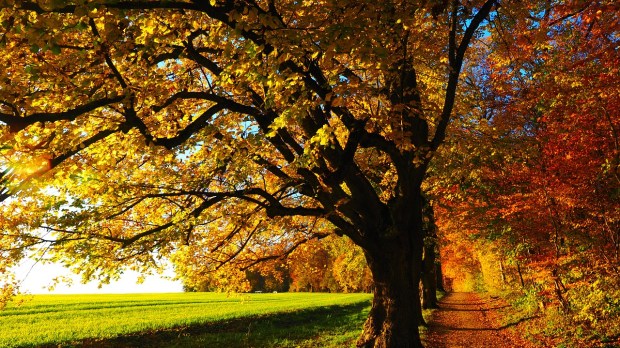Lenten Campaign 2025
This content is free of charge, as are all our articles.
Support us with a donation that is tax-deductible and enable us to continue to reach millions of readers.
As the last day of summer is upon us, I lament the loss of time.
My little girls splashing in the lake, playing catch as the sun’s light dies ever-earlier. Our weekday adventures to museums and batting cages and hidden paths along a rushing Minnehaha creek behind us. Echoes of my wife cheering for summer’s tennis or baseball nail-biters, buying one more meal for one last barbecue, misting up as we drive home from her extended family grown older and farther away. My mornings beginning with a gentle kiss to sleeping sprites who begged me to wake them before I leave for work (I keep my promise). My evenings coaxing lovingly resisting children wanting to stay up for the end of the show, the end of the game, the end of the night. And once they submit, laying next to them and hearing their deep, rhythmic breathing as their bodies heave heavy with sleep. My glance at my wife – my love – for ever-growing years since we first met, since we first fell in love. For tomorrow, school, sports and schedules await – no, they claw for time. And the childish freedom, the glee of wonder-filled summer steps aside chastened, but straining to return.
I came across a poem today from Gerard Manley Hopkins that just pierced me. It is named Spring and Fall (to a young child),
Márgarét, áre you gríeving Over Goldengrove unleaving? Leáves like the things of man, youWith your fresh thoughts care for, can you? Ah! ás the heart grows older It will come to such sights colder By and by, nor spare a sigh Though worlds of wanwood leafmeal lie; And yet you wíll weep and know why. Now no matter, child, the name: Sórrow’s spríngs áre the same. Nor mouth had, no nor mind, expressed What heart heard of, ghost guessed: It ís the blight man was born for, It is Margaret you mourn for.
For me, the transition from summer to fall epitomizes that elusive angst, that unsettled feeling, that nagging illness-at-ease which haunts us from our earliest conscious days as a child and follows us all of our days. Even amidst youthful joy and wonder we can sense that, even here, our joy has limits and our wonder is chastened. But as we grow older, we sense that part of our disquiet lies not only in an inarticulate homesickness at home, but in the loss of the innocence and idealism of our youth (and that of our children). Freedom is squeezed out by “edifying schedules.” Youth is inched out by aging “responsibility.” The young Margaret mourns the remnants of her once lush tree after the unkindness of fall – “grieving over Goldengrove unleaving”. Too soon, she will mourn the remnants of the child she once was and no longer is.
I lament the loss of time.
But then, I realize, there is no lamentation if we are on God’s Time.
Yes, God’s Time. World without beginning. World without end. Love all-consuming which transcends my unmet goals, my lonely mornings, my guilt, my fears. My children were born for Eternity. As was my wife. As was I. Those warm dockside breezes, cool mid-lake floats, mornings without duties and evenings without end were all foretastes – glimpses – of the freedom to be and the unending joy of Eternity. In man’s time we, like Margaret, lament these moments’ passage. In God’s Time, we are assured of their return.
The writings of Hilaire Belloc and Sigurd Olson have accompanied me on my summer’s end. They are men acquainted with the fall. They tell me of their journeys away from man – away from cities impatient with traffic, buildings glaring at their inhabitants. They remind me of paths away from time outside of sunsets and stars emerging. They give voice to running rivers, lapping waves, terrible storms and singing breezes. Their salvation is not in escape into wildness. It is in reacquaintance with interiority. God rests in us in the joy of summer and the loss of fall, in the scurrying senseless city and the quiet, intentional wild. And what Belloc and Olson remind is simple and eternal, “This. This is God’s Time. This is reality, not that pulsating imitation man has made – the grotesque that bleeds wonder, that dismisses joy and worships at the altar of efficiency. This quiet voice, this flickering flame, this child inside – ever wondering, ever new. This is where God wants you to be.”
Yes. That is where I want to be as well. And stay.
But I must return, as we all must.
My father once wisely reminded me, “Life is in the trenches, Tod.”
And so it is.
But I won’t lament.
Because I believe in God’s Time.
I just need to set my life to it.
Photo credit:

